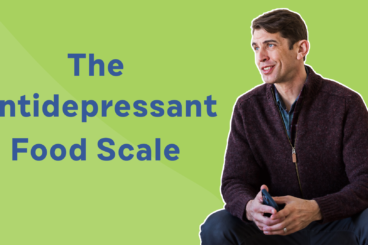If you have ever marveled that the human brain takes light energy and turns it into vision, you have been thinking of vitamin A. It is a fat-soluble vitamin and involved in the regulation of genes key to a healthy brain.“Vitamin A” is a term used for a number of related compounds that include carotenoids, like beta-carotene, that can be converted to vitamin A.
Along with vitamin A’s role in vision, the body also converts it to retinoic acid, which affects gene transcription promoting the production of enzymes that make neurotransmitters like dopamine, as well as its receptors. This makes vitamin A key to the biochemistry of mood, memory, and learning. (One of the coolest things I’ve found about the brain and food is that vitamin A and vitamin D nuclear receptors actually bind together in a genetic regulatory mechanism). Vitamin A is also key to immune function.
Vitamin A is another reason to consider meat as a brain food. Real vitamin A, retinol, is only found in meat (it’s what gives fat a yellow hue). Plants like carrots and sweet potatoes are a great source of carotenoids that the body can convert to retinol, though there is debate about the efficiency of this process. Vitamin A deficiency is an International Health Crisis greatly stunting the growth and brain development of up to a third of children word-wide. The first sign of a deficiency is difficulty with night vision.
While vitamin A is absolutely essential to the developing brain, taking high doses of a vitamin A supplement can be toxic to a fetus. It is possible to overdose on a supplement since the vitamin is stored in fat, but it’s a disclaimer we don’t have to worry about in The Farmacy. A vitamin A overdose from food has never been reported.
Top Farmacy Sources: Chicken and Beef Liver (try liver sausage), Eggs (yolk), Whole Fat Milk, Cheese and Butter, Oysters, Salmon (and its roe).



